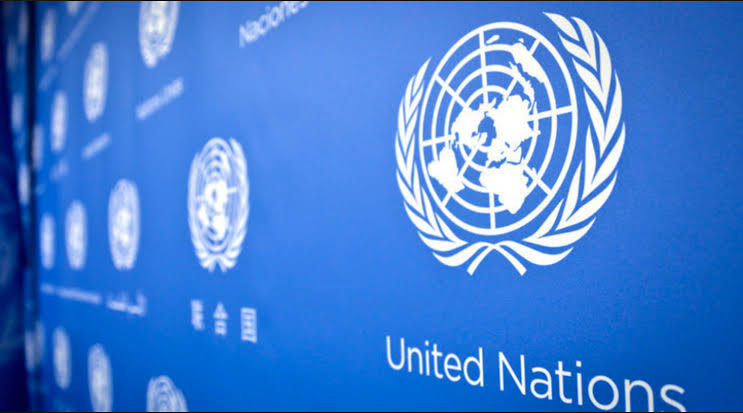– Spends $1.5bn Yearly On Humanitarian Services In Nigeria
The United Nations has advised the Federal Government to combine the use of military force with dialogue as a new security strategy in tackling the insecurity in the North-East, where attacks by Boko Haram remain a major national security threat.
Advertisement
The UN said it spent spent about $1.5 billion yearly in supporting humanitarian services in the zone.
Its Resident Coordinator and Humanitarian Coordinator in Nigeria, Edward Kallon, spoke on the issues on Monday after a UN delegation visited President Muhammadu Buhari at the State House, Abuja.
He said the aim of the visit was primarily to express gratitude to Nigeria for supporting the quick rehabilitation of the UN House in Abuja, following the 2011 bombing of the structure by Boko Haram.
A total of 21 lives were lost to the attack.
Advertisement
Speaking on security challenges in Nigeria, the coordinator classified them into “identity-based conflicts”, “resource-based conflicts” and “power-based conflicts”, adding that it would require a different strategy to combat each of them.
However, he suggested that solutions should combine political, economic and social perspectives with military might to overcome insurgency, banditry and kidnapping in Nigeria.
He spoke further, “So, the conflict is still ongoing. It’s not over. But today again, I told Mr President that in addition to the military effort, that there is need to complement that with enhanced dialogue and political approach process in search of durable solution to the crisis.
“So, we think various approaches have to be used to find a solution. But when you talk about conflicts in Nigeria, we are talking about three typologies.
“There is no one size fits all. You have identity-based conflicts, resource-based and power-based conflicts. Each of those typologies require different approaches and solutions. That is the complex axis we are dealing with.
Advertisement
“In the Northwest, you have the situation of banditry that is mixed up with some elements of terrorism which makes it even more complex. And there is also power based-conflict that is ongoing. So, because of the mixture of these typologies within Nigeria itself, that is why it is so difficult to find solutions to them, because you have to deal with each of them.
“But underneath all these beehives of conflicts dynamics, there are three dynamics that before a solution is found, we must look at the political, economic and social contexts that are so critical in finding a solution. The relationship between those three factors remain extremely important when you start looking at the issue of criminality, banditry and terrorism.
“So, my call to His Excellency is to look at that robust mechanisms as a way of trying to find solutions to the conflicts in general.”
The UN official also touched on the difficulties aid workers faced in trying to deliver supplies to Internally Displaced Persons, saying that till date access to locations remained a hindrance.
He added that the ultimate goal of government should be to return all IDPs to their ancestral homes.
He noted that 1.2 million persons were displaced in the North-East while another 293,000 were refugees in Niger, Chad and Cameroon, adding that a deliberate plan must be worked out to ensure their safe return to normal life.
Advertisement
Kallon said, “I have been part of this endeavour for three and half years, from the time we had no access to the affected population, to the point where we had access to the affected population who are currently in IDP camps, and that is due to the gradual improvement of security that was possible.
“Most of you could remember at the beginning of this crisis – there was no access to the affected population because of insecurity. That element has improved over the years. Yet still, the situation is still extremely difficult in the sense that the population are still kept in garrison type of camps. People are not able to go back to undertake their normal activities to rebuild their lives and livelihood. There are periodic attacks on them by non-state armed groups.
“So, it is quite a difficult situation at this point in time. As a result of that, we are very clear on, and I told this to Mr President, that there are no humanitarian solutions to humanitarian problems and that the only solution to the North-east is peace. The only thing we can do is to ensure that in whatever we do, we prioritise prevention. We support development in areas feasible and we provide humanitarian assistance when needed.
“In our jargons, we say we have to bridge the humanitarian development of peace building as a framework to find a solution to the crisis in North-east Nigeria. The affected people especially the 1.2 million IDPs and over 293,000 refugees in Niger, Chad and Cameroon must be supported in every way.”
He spoke on a wide range of other issues, including COVID -19 and the efforts of the Buhari administration in tackling corruption.
In his response, Buhari said he was elated over the continued support Nigeria received from the UN and its agencies.



